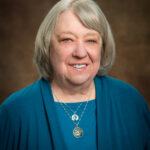Nie Wieder
I had fallen in line, obedient to the rules of the museum at Auschwitz.
We entered a room filled,
floor to ceiling, with cases containing
what had been taken from them;
so unsuspecting some must have been
as they shuffled, much as we do today, not knowing
what horrors would unfold:
Suitcases neatly marked, each with a name
and ahome address, and all that that implies;
some had come in with the canes,
the crutches, the prosthetics, now piled in the next case;
and then the eyeglasses, broken and twisted; and then
the hair, and on we went, as a grey numbness
crept over me like a shield from what we humans cannot bear,
so much horror, so much
loss, so much
humanness; so much reality;
but after all that, it was the case near the end
that penetrated all those barriers the numbness had built;
it was as if all those insidious yellow stars
they had to wear had suddenly converged and
imploded into utter blackness
within the marrow of my own bones,
and these are the only words, the only emotion
I had left:
A lot of good it did those holy souls,
trembling hands packing, perhaps gently smoothing
before closing the lid,
prayer shawls,
white-tassled and blue and full of trust
for so unholy a journey. What could they have thought,
and how could they have known
that between the train tracks and the impending
shower of cloud,
there would be no shawls,
there would be no time
even for prayer–
Nie wieder, the sign at the museum entrance reads–
But today, I can only remember
Kyrie.
Kyrie eleison
Have mercy, Lord–
We said we woud never forget–
6 thoughts on "Nie Wieder"
Leave a Reply
You must be logged in to post a comment.


Beautifully stated and oh, so timely.
My brain does its own thing. I interpreted two meanings to this line, and I don’t know if you meant this, but I’ll share:
it was as if all those insidious yellow stars
Yes, yellow fabric stars sown onto clothes, but I also saw the yellow stars as the gold filings that were pried out of the teeth of dead victims. First prejudice, then abuse of corpses. How inhumane humans can become. (We see just exactly how daily now.)
Thank you so very much for sharing this timely and heart-felt poem.
Thank you so much for your comments! I was thinking the stars that were required to be worn, but I had wondered how to incorporate the medical/dental abuse of the corpses. Now I see that the line can encompass both.
It has been several years since I went to some of the concentration camps and ghettoes in Europe, and I can remember how easy it was to think that all this was “history.” But yes, now here it is, in this country. How sad and how frightening it is to know history and to see it being repeated in spite of all the warnings we had.
Thank you again for your much-welcome comments!
A grim but beautiful reminder of what we mustn’t forget, Jonel. Sad that Holocaust denial is alive and thriving.
Kevin…I know. I’ve tried to write this poem for more than 10 years, when I went to Auschwitz. It is sad that I can finally write it because it is suddenly right at our doorstep. Unreal. Except it isn’t.
Thank you for reading it and commenting!
So very sad. And, yes,
“Unreal. except it isn’t.”
Thank you for sharing.
Thank you for your kind words!